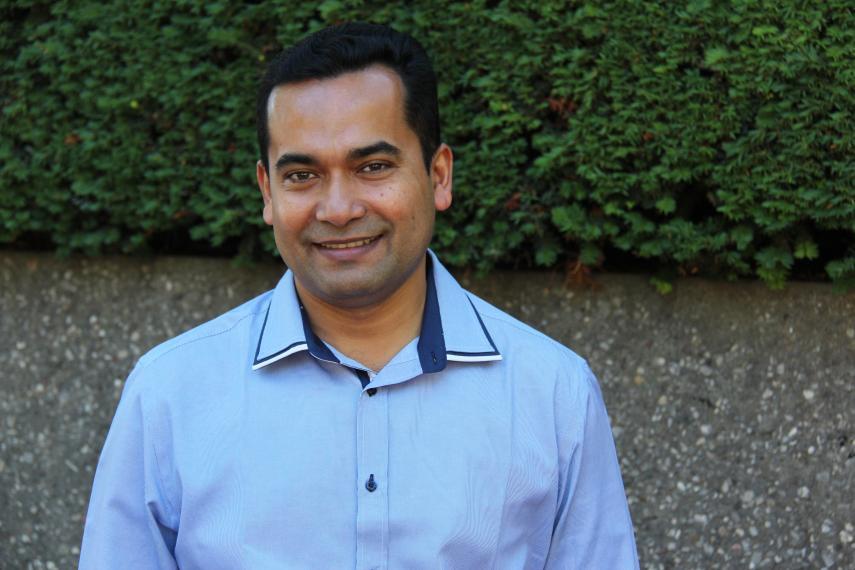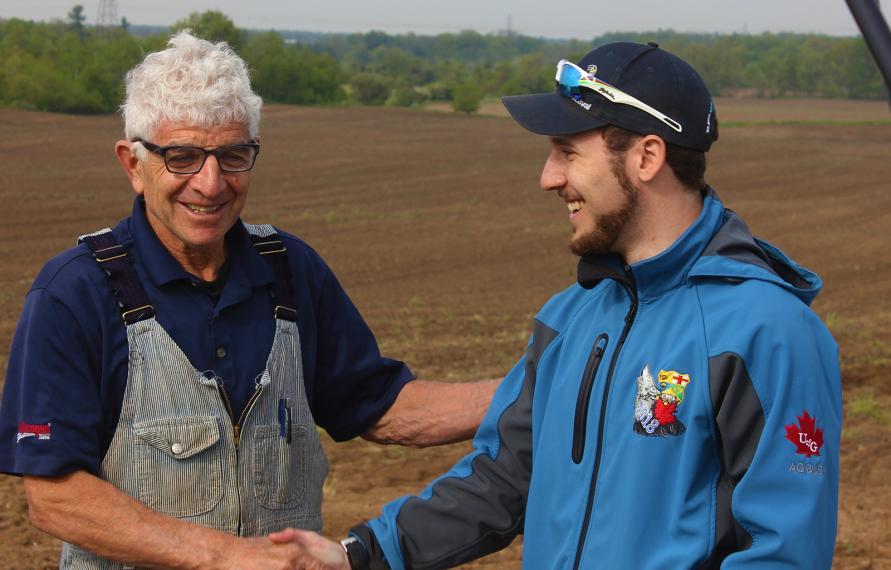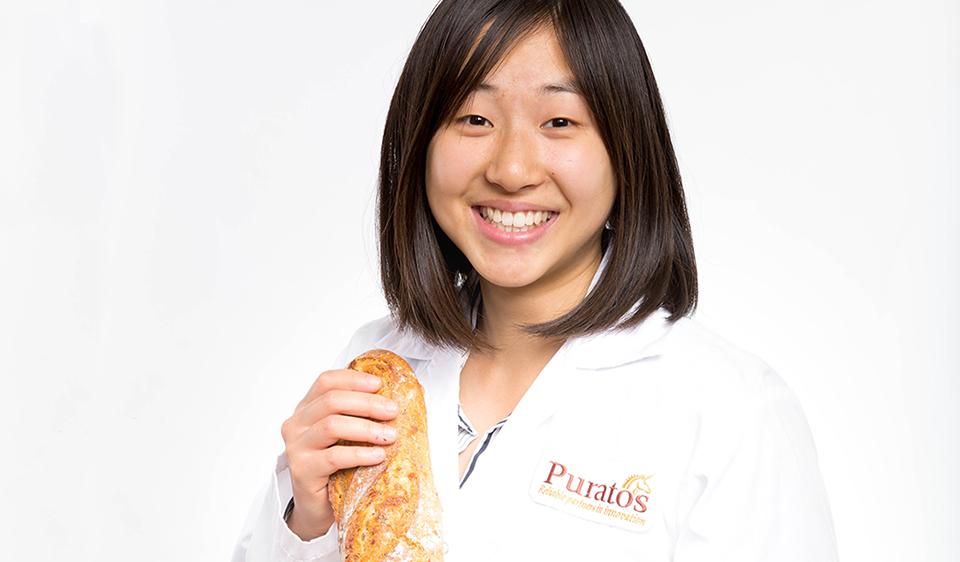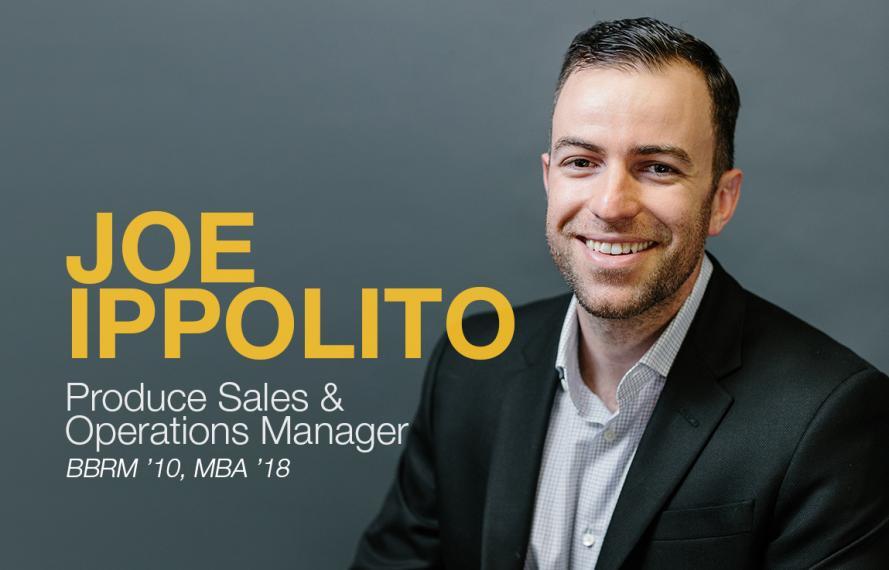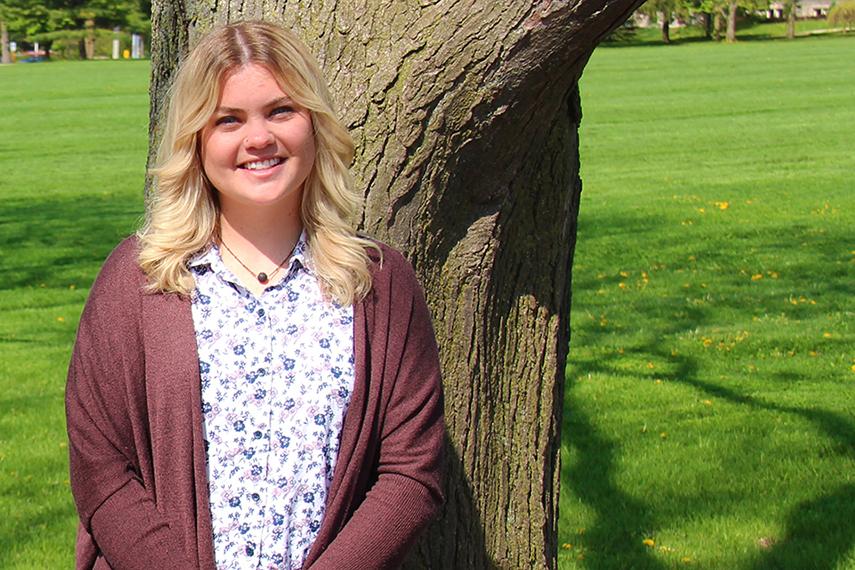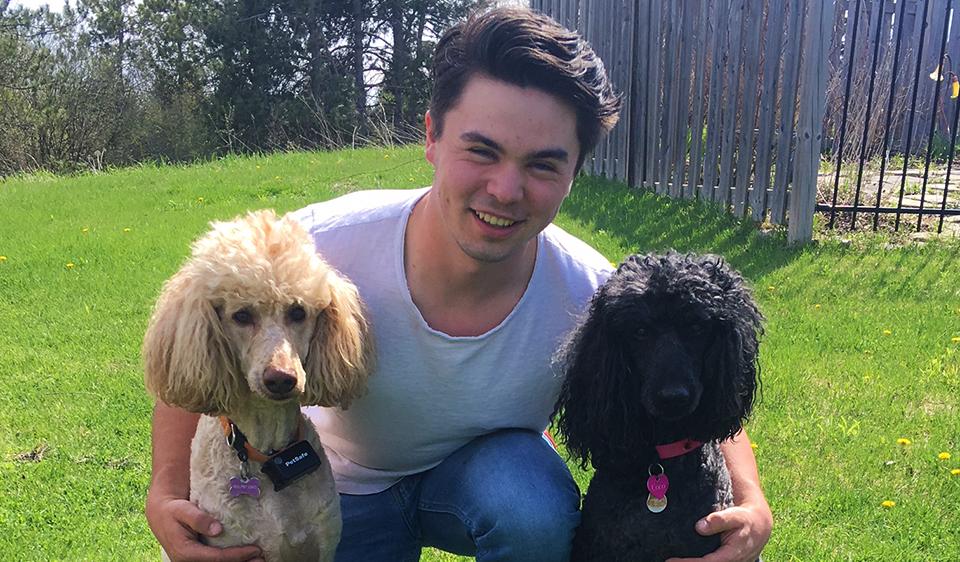
Meet Thomas, Food Science Student
Thomas Hache came to the University of Guelph to study food science because he was interested in the science of food rather than the culinary aspects. Through classes and events he began meeting fellow OAC students commonly known as ‘Aggies’. At first, he wasn’t sure if a food science student would fit in with the Aggie crowd, but today he even sports a traditional ‘OAC Aggies’ leather jacket.
